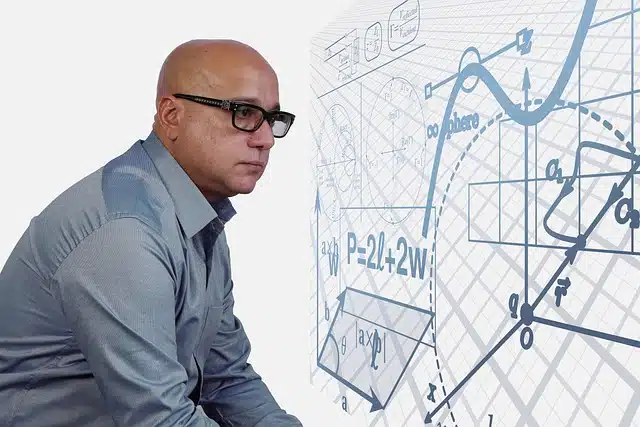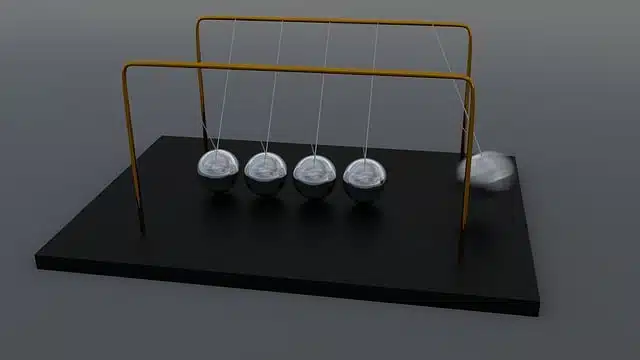
Inertia is analyzed from physics.
The Latin word inertia , which can be translated as "inaction" , came into Spanish as inertia . The concept is used in the field of physics to refer to the property that bodies have of preserving their state of motion or rest if they are not influenced by an external force.
Inertia, in this framework, refers to the ability of a body to maintain its state of relative motion or relative rest . It is, therefore, the resistance exerted by matter to changes in direction or speed.
Law of inertia
The first of the laws postulated by Isaac Newton (1643-1727) is known as the law of inertia . The British physicist and mathematician indicated that every body maintains its state of uniform and rectilinear movement or rest unless a force exerted on it forces it to modify its state .
The resistance exerted by an element to change the direction or state of movement is called inertial force . In the field of mechanics, meanwhile, the sum of the products obtained by multiplying the mass of the various elements of a body by the square of the distance that exists up to an axis of rotation is called moment of inertia .

Inertia is the property that allows a body to maintain its state of rest or motion when not influenced by an external force.
Different views
It is interesting to note that not all researchers have the same point of view about inertia; That is to say, it is not defined in the same way for everyone. There are those who believe that mechanical inertia is a way in which mass manifests itself and are interested in the proposals of particle physics , the branch that focuses on the study of the fundamental components of matter and their interactions.
In this framework, the name Higgs boson is known as an elementary particle (that is, an elementary constituent of matter) that was proposed in the relativistic theory of quantum fields called the standard model of particle physics . The name derives from the British physicist Peter Ware Higgs , who together with other scientists dedicated part of his work to the study of the origin of the mass of this type of particles.
On the other hand, there are those who consider inertia as a characteristic that has a connection with mass and travels different paths. It is important to note that this group is considerably smaller than the previous one, and new ideas emerge much less frequently; When they appear, they are usually taken as protoscience , that is, as a recent area of work that has not yet been consolidated. C. Johan Masreliez , for example, a Swedish-American physicist, points out that inertia can be explained as a consequence of acceleration if certain metric coefficients are changed.
Inertia as apathy
The notion of inertia also appears in colloquial language as equivalent to apathy , indolence or routine . For example: "We maintained the relationship out of inertia for several years until we decided to separate," "Stop acting out of inertia and start thinking about the things you do," "The project moved forward by inertia, without anyone paying much attention to it." .
Let's look at the examples just presented to understand a little more about the meaning we give to the term in everyday speech. Maintaining a relationship by inertia is continuing with the other person without stopping to think about the direction , the expectations of each one or the reason why we do it. Acting out of inertia is similar, although this verb denotes a tendency to make hasty decisions, without evaluating the potential results. The case of the neglected project also tells us about a lack of attention to something important, as if it were pushed down a slope.
